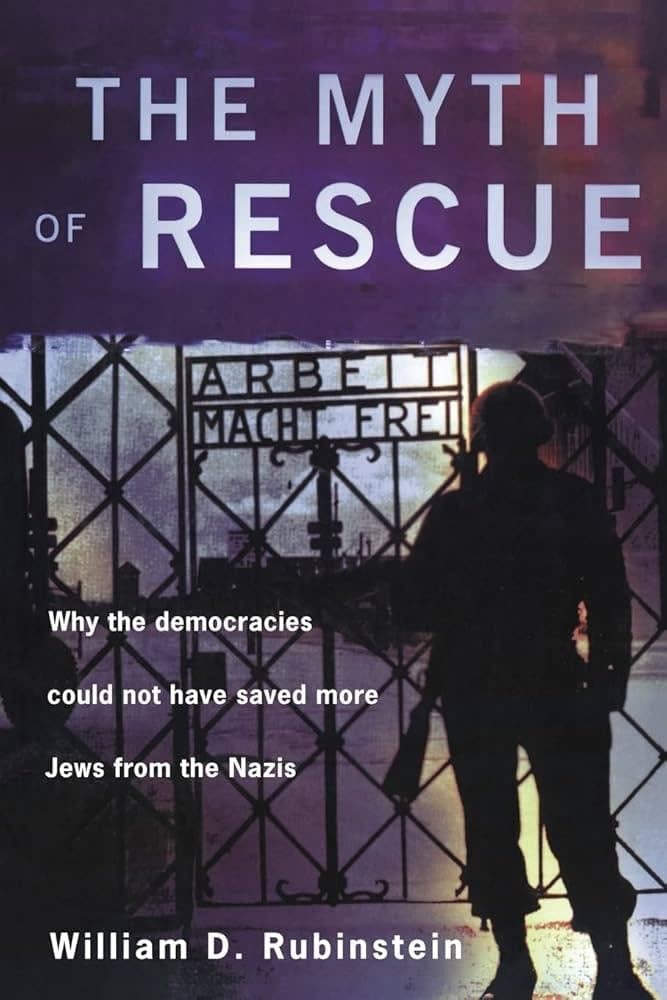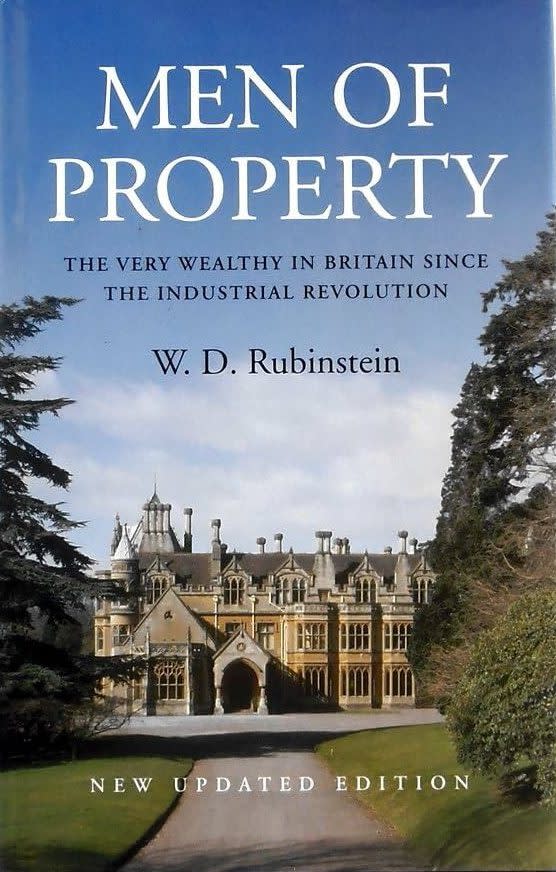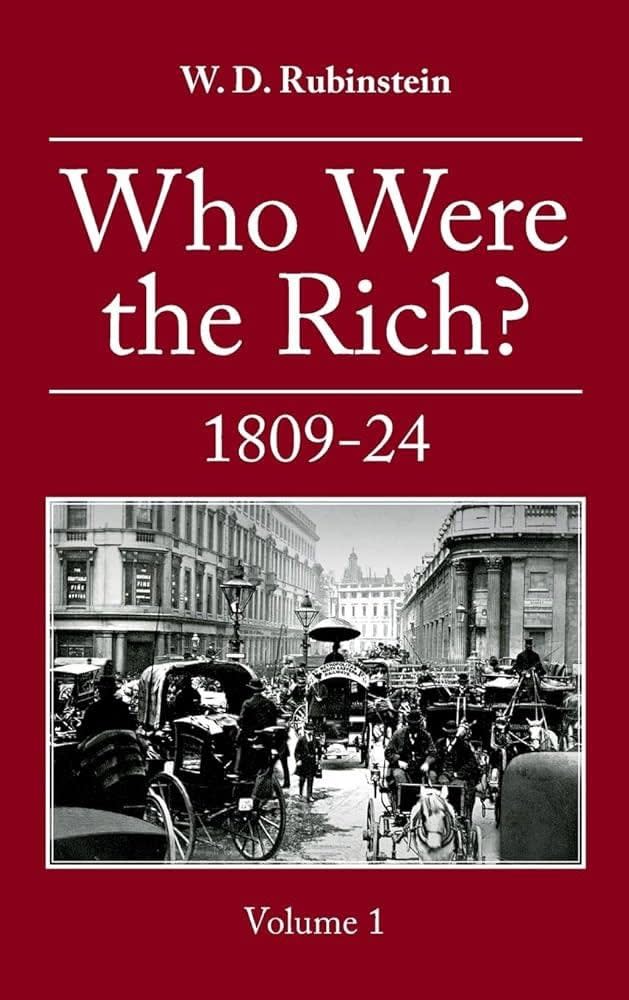William Rubinstein, historian of the ‘super rich’ who also defended Britain’s policies during the Holocaust

Professor William Rubinstein, who has died aged 77, was a social and economic historian mainly known for his books on the modern history of the Jews, although he also charted the rise of the “super rich” in Britain and even contributed his pennyworth to the Shakespeare authorship question.
Born in the US, Rubinstein taught for many years in Australia, and subsequently, from 1995 to 2011, at the University of Wales, Aberystwyth. In his work on Jewish history he focused on the experience of Jews in the English-speaking world, and in what was perhaps his most controversial work, The Myth of Rescue: Why the Democracies Could Not Have Saved More Jews from the Nazis (1997), he took on the argument that Jews were not merely victims of the Nazis, they were also “victims” of the wartime democracies who “allowed” them to be annihilated in the Holocaust.
As Rubinstein pointed out, before Hitler became master of Europe, he had not decided on the Final Solution. The annihilation of the Jews was not begun, or even planned, until he had defeated all his European enemies except Britain and Russia.

Then he could do what he liked within Europe, and the Allies, who were losing the war until 1943, could do nothing to stop him. Some suggested they should have bombed Auschwitz, but the death camp was beyond the range of their aircraft by hundreds of miles.
As for the idea that Hitler might have swapped Jews for materiel (discounting the reluctance every country would have felt at helping him to prolong the war) Rubinstein argued that Hitler was not open to the offer: by 1943 he was hellbent on killing every Jew living under his power. The western democracies could do nothing until they had totally defeated the Third Reich.
Rubinstein argued that many of the so-called wartime “plans for rescue” were figments of postwar historians’ imaginations. There were few, if any, rescue plans mooted by anyone, even Jews. Those who tried to help were primarily concerned with accommodating Jews who somehow managed to escape, and western democracies, Britain in particular, had been extremely good about accepting refugees.
During the 1930s, as Hitler made life for Jews in Germany as difficult as possible, governments relaxed entry regulations and ordinary people welcomed the fugitives. By 1939 83 per cent of young German Jews, including children, had left, and 63 per cent of all Jews had emigrated. The Foreign Office allowed its consuls to issue 50,000 entry permits without reference to London and, despite the Arab revolt against further Jewish immigration, the government of British Mandate Palestine issued more entry permits than were taken up.
More than one sixth of those who left came to Britain. Unfortunately, many others found refuge in countries which were to come under German rule.
The Myth of Rescue drew angry criticism from some quarters, the Holocaust historian David Cesarani calling it “a polemic that will quickly fade”. Yet most reviewers were convinced by Rubinstein’s analysis, John Fox, lecturer in Jewish History and Holocaust Studies at the London School of Jewish Studies, observing in the Evening Standard that Rubinstein “reminds those who need reminding of one basic fact about the writing of history: write it as it was, not as people think it ought to have been.”

William David Rubinstein was born in Brooklyn on August 12 1946 to a Polish-born father whose parents came from Łódź and were related to the great pianist Arthur Rubinstein. His American mother’s maiden name was Rubenstein.
After Swarthmore College, Pennsylvania, and Johns Hopkins University, Baltimore, he spent a short time in London working on a Lancaster University history project before emigrating to Australia in 1976.
Settling in Melbourne, Rubinstein became a leading figure in Australia’s Jewish community, lecturing at the Australian National University in Canberra (1976-78) before taking up a personal chair in history at Deakin University, Victoria, where he remained until his appointment as Professor of History at the University of Wales, Aberystwyth.
As well as his work on Jewish history, Rubinstein was particularly known for his research on the “super rich” in modern Britain. In Men of Property: The Very Wealthy in Britain Since the Industrial Revolution (1981), he drew on data from tax, probate and other records to show that, from the early 19th century, most of the richest in Britain earned their fortunes in commerce and finance, especially in the City of London, rather than in manufacturing and industry, and there was a general subordination of industrial to commercial and financial wealth. The mid-Victorian manufacturing boom was an exception, and when the initiative in manufacturing moved elsewhere it was not symptomatic of an economy in decline.
He drove the point home in Capitalism, Culture and Decline in Britain, 1750-1990 (1991), a frontal assault on the “cultural critique” of the British economy and the decline of its manufacturing base espoused by Anthony Sampson, Corelli Barnett and others. Because Britain’s economy had always possessed a comparative advantage in commerce and financial services, Rubinstein argued, “industrial decline or collapse can be seen, with greater accuracy, as a transfer of resources and entrepreneurial energies into other forms of business life”.

He went on to comment favourably on Thatcherite policies of denying state support for manufacturing industry on the grounds that the results were likely to be “quixotic and counter-productive”.
Rubinstein found fewer takers for the theory expounded in The Truth Will Out: Unmasking the Real Shakespeare (2005, with Brenda James), that the true author of the Bard’s plays and sonnets was the little-known English politician and aristocrat Sir Henry Neville, on the basis of claims that the political content and geographical location of the plays were a perfect reflection of Neville’s known travels.
In later life Rubinstein returned to Australia, where he became an adjunct professor at Monash University in Melbourne.
He was involved in numerous Jewish and historical organisations in both Australia and in Britain, where he served as president of the Jewish Historical Society of England (2002-04) and was a fellow of the Royal Historical Society.
In 2022 he was awarded the Medal of the Order of Australia for services to tertiary education and to Jewish history.
Rubinstein is survived by his wife and fellow historian Hilary and by their son.
Professor William Rubinstein, born August 12 1946, died July 1 2024


